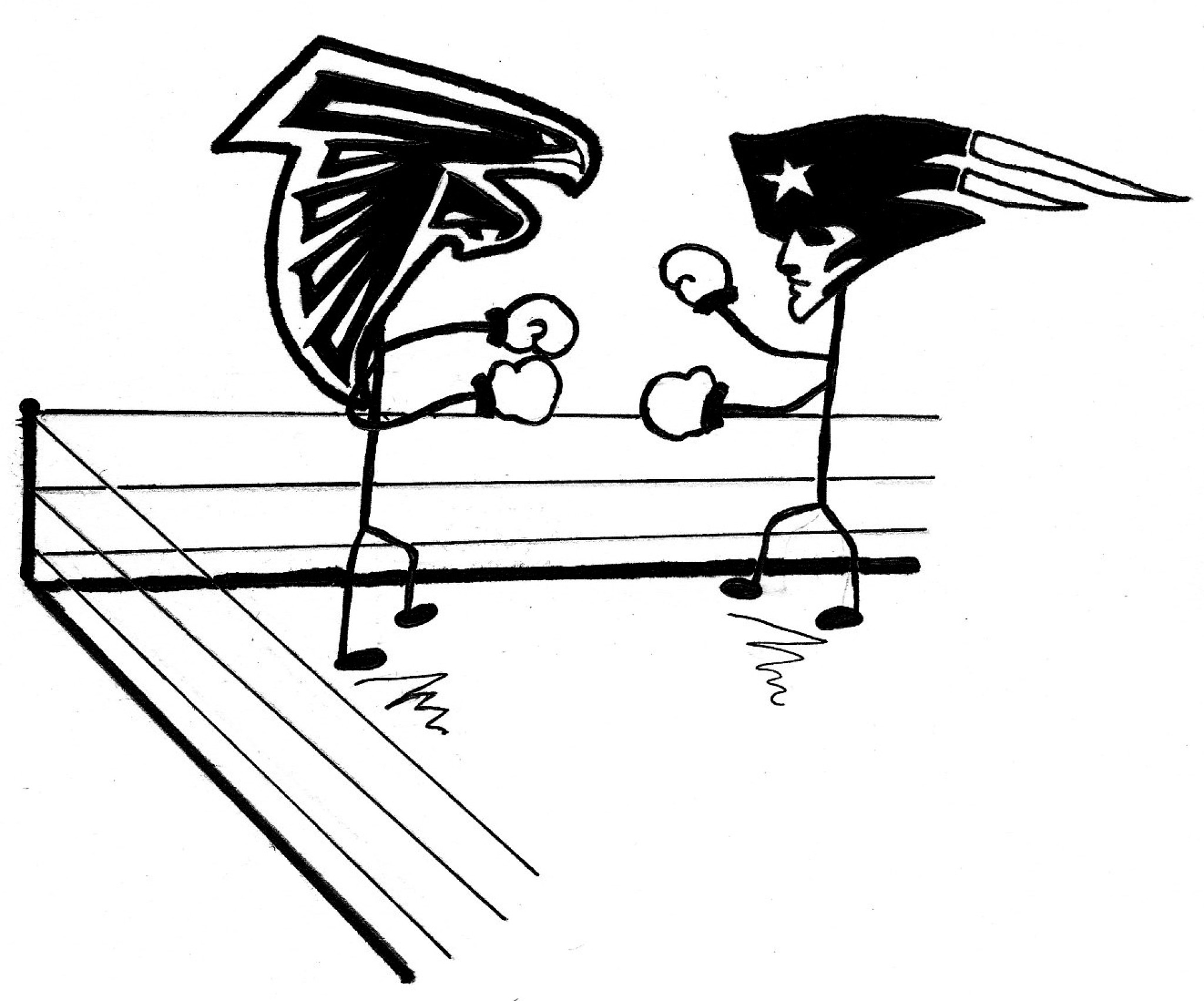Super Bowl LI was one for the ages, a rare sports moment that not only met the hype but exceeded it.
Tom Brady got his fifth ring in the most improbable fashion; before Super Bowl LI, no team had ever overcome a deficit of more than ten points, and Brady was down 21-3 at halftime. The Atlanta team that was practically flawless in the first half stagnated through the second half and collapsed in overtime.
The Falcons felt undoubtedly in control of the game until they gave up a two-point conversion to tie the game with 57 seconds left.
The game eventually went into overtime — a Super Bowl first. New England won the coin toss, and the ending seemed obvious. The NFL has been heavily criticized year after year for its one-sided and criminally twisted overtime procedure. The first team to score a win (unless the first score is a field goal) ensures there is no equality, parity or redemption.
Matt Ryan and the Falcons’ offense’s year’s worth of hard work, grit, and excellence was thrown out of the window simply because they lost a coin toss.
The Patriots got the ball first, and by a combination of improbable throws, impossible catches, and timely penalties were able to cross the goal line first and win 34-28. While everyone can agree that the Patriots pulled off arguably the greatest comeback in sports history and reinforced the saying, “it’s never over till it’s over,” the fact that the Falcons offense never got a chance to match them leaves a sour taste in many fans’ mouths.
Many will rightly be suspicious of a fixed game or cheating (ESPN’s game prediction algorithm gave the Falcons a 99.3 percent chance to win at one point in the third quarter), given the unlikelihood of the outcome, the Patriots history of subterfuge, and the ratings bonanza the second half created (after a relatively disappointing first half).
Still, this will be remembered as what cemented Brady and Belichick’s legacy as two of the greatest. Yet it’s equally likely we’d spend months lauding Matt Ryan and company if that coin flipped just one more time.
Every year, the Super Bowl is all about narratives; the hype, the week long lead up, the commercials, the endless articles about who will win, and who has the advantage.This hype is the buzz surrounding the holiest day on the American calendar, Super Bowl Sunday. The story lines are a plenty for the 51st iteration of the NFL’s championship, this year pitting the perennial powerhouse New England Patriots against the equally dynamic but lesser known Atlanta Falcons.
On one side we have New England’s Tom Brady. Brady already had four rings to his name along with two NFL MVPs, three Super Bowl MVP’s, 12 pro-bowl selections, and two first-team all-pro selections going into the game.
So why was this super bowl so important to Brady and his legacy? Well for starters, Brady’s fifth win cements him as the greatest quarterback in the history of football in the eyes of many fans, analysts, and players. On the other side we had Matt Ryan, a man whose legacy is still very much up in the air. Ryan, this year’s NFL MVP, who posted the fifth highest passer rating in NFL history this year (passer rating is a composite statistic that shows the total value of a quarterback), is playing at a level rarely rivaled.
Ryan has consistently put up great years over the first eight seasons as the Atlanta’s signal caller (he has been selected to four pro-bowls and one all-pro first team), but his regular season achievement is often overshadowed by his lack of wins in big games.
For better or for worse, quarterbacks are unfairly judged by the number of Super Bowls they win.
Atlanta’s bread and butter is their high-powered offense. Lead by the humble and freakishly talented Julio Jones, and well complimented by secondary receivers Mohamed Sanu and Taylor Gabriel, with the dynamic backfield duo of Devonta Freeman and Tevon Coleman, and the venerable Center Alex Mack, Atlanta’s offense is firing on all cylinders.
Jones has shown he can catch any ball in any location against any defender due to his focus, speed, hands, and strength; Freeman and Coleman have burned defenses with their combination of ground pounding and pass catching out of the backfield.
On the other side of the field, Tom Brady is surrounded by his typical band of no-name stars.
Brady’s leading receiver in the AFC championship, Chris Hogan, played three years of college lacrosse before switching to football for one year, became an NFL undrafted free agent, was cut by two teams and then ended up catching nine passes for 180 yards and two touchdowns in the AFC championship. He eclipsed his entire college career yardage of 143 yards in one game. As unlikely as this story is, Brady has made a career of turning nobodies into household names. A discussion of the Super Bowl is not complete without a discussion of the the coaches. The Patriot’s Bill Belichick, widely considered one of the greatest coaches in football history, clinched his fifth ring Sunday.
Belichick is infamous for his “system,” since he took control of the team, the Patriots, under his mentorship, are known for their work ethic, intelligence, team-first play, versatility, and their no-frills militaristic approach to games.
Dan Quinn, the Falcons coach, like Belichick is a defense first coach blessed with a high-powered offense.
Like Belichick, Quinn has turned a no-name defense into a force to be reckoned with. The Super Bowl promised to be a battle of talent on the offensive front, a battle of resolve on the defensive side of the ball, and a battle of wits from the sideline, and delivered.





